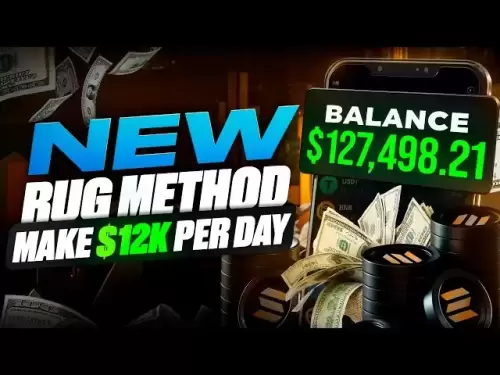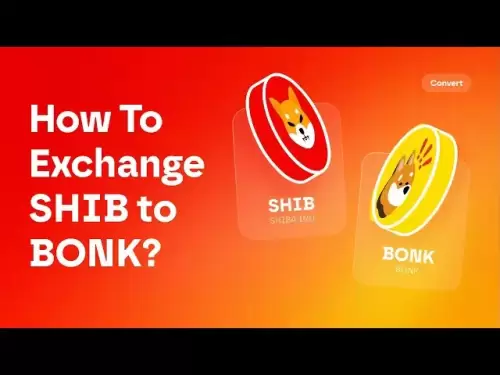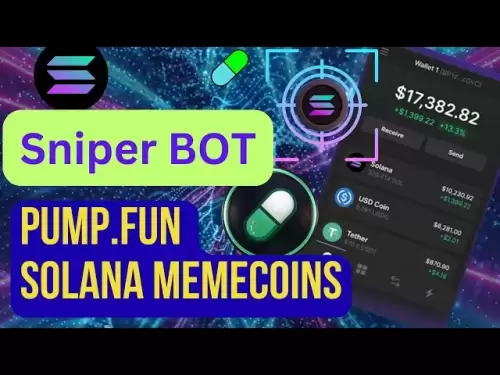-
 Bitcoin
Bitcoin $112400
-1.07% -
 Ethereum
Ethereum $3409
-3.27% -
 XRP
XRP $2.784
-6.60% -
 Tether USDt
Tether USDt $0.9997
-0.03% -
 BNB
BNB $739.3
-2.09% -
 Solana
Solana $158.0
-2.90% -
 USDC
USDC $0.9998
-0.02% -
 TRON
TRON $0.3213
-0.94% -
 Dogecoin
Dogecoin $0.1929
-5.01% -
 Cardano
Cardano $0.6974
-2.82% -
 Hyperliquid
Hyperliquid $36.69
-2.31% -
 Sui
Sui $3.327
-4.80% -
 Stellar
Stellar $0.3672
-5.18% -
 Chainlink
Chainlink $15.65
-3.07% -
 Bitcoin Cash
Bitcoin Cash $525.0
-1.68% -
 Hedera
Hedera $0.2291
-6.00% -
 Avalanche
Avalanche $20.91
-2.96% -
 Ethena USDe
Ethena USDe $1.000
0.00% -
 Toncoin
Toncoin $3.520
-1.12% -
 UNUS SED LEO
UNUS SED LEO $8.968
0.14% -
 Litecoin
Litecoin $105.7
0.26% -
 Shiba Inu
Shiba Inu $0.00001181
-1.79% -
 Polkadot
Polkadot $3.492
-2.08% -
 Uniswap
Uniswap $8.800
-3.10% -
 Dai
Dai $0.9999
-0.01% -
 Monero
Monero $289.9
-3.17% -
 Bitget Token
Bitget Token $4.243
-1.27% -
 Pepe
Pepe $0.00001006
-3.67% -
 Cronos
Cronos $0.1248
-5.68% -
 Aave
Aave $249.7
-2.50%
What is blockchain
Blockchain's immutable nature, where once recorded data cannot be altered, ensures the integrity and reliability of transaction records in a secure and verifiable environment.
Oct 08, 2024 at 01:18 am

What is Blockchain?
1. Definition:
A blockchain is a distributed, immutable ledger that records transactions across a network of computers in a secure and verifiable way. It consists of a series of blocks, each containing a timestamped record of transactions, linked together in a cryptographic chain.
2. Key Features of Blockchain:
- Decentralized: Not controlled by a single entity, but rather by a network of nodes.
- Immutable: Once recorded, transaction data cannot be altered or tampered with.
- Transparent: All transactions are visible and verifiable by everyone on the network.
- Secure: Transactions are protected by advanced encryption and consensus mechanisms.
3. How Blockchain Works:
- Transactions are grouped into blocks.
- Each block contains a cryptographic hash of the previous block, ensuring the integrity of the chain.
- Blocks are broadcast across the network and validated by nodes using consensus mechanisms.
- Once validated, the block is added to the chain.
- Any attempt to alter a transaction in a previous block will invalidate all subsequent blocks, making it extremely difficult to forge or tamper with data.
4. Key Applications of Blockchain:
- Cryptocurrencies: Bitcoin and other digital currencies use blockchain to record transactions and verify ownership.
- Smart Contracts: Self-executing agreements stored on a blockchain that automatically trigger actions based on predetermined conditions.
- Supply Chain Management: Tracking the provenance and ownership of goods from origin to end-user.
- Healthcare: Securely managing medical records and enabling data sharing with authorized parties.
- Voting Systems: Creating tamper-proof and transparent electronic voting systems.
5. Benefits of Blockchain:
- Increased Security: Data is protected through encryption, minimizing the risk of hacking and fraud.
- Transparency and Trust: All transactions are visible and verifiable, fostering trust among network participants.
- Automation and Efficiency: Smart contracts automate processes, reducing manual labor and errors.
- Improved Data Integrity: Once recorded, data cannot be altered, safeguarding its authenticity and reliability.
- New Business Models: Blockchain enables the creation of innovative services and applications that leverage its unique features.
Disclaimer:info@kdj.com
The information provided is not trading advice. kdj.com does not assume any responsibility for any investments made based on the information provided in this article. Cryptocurrencies are highly volatile and it is highly recommended that you invest with caution after thorough research!
If you believe that the content used on this website infringes your copyright, please contact us immediately (info@kdj.com) and we will delete it promptly.
- Grayscale, Altcoin Trust, and Mid-Cap Mania: What's the Deal?
- 2025-08-03 08:50:16
- XRP, ADA, and the Altcoin Evolution: What's Hot and What's Next
- 2025-08-03 08:30:16
- HBAR Price Check: Will Monthly Gains Hold at This Resistance Level?
- 2025-08-03 08:30:16
- Bitcoin, Cryptos, and Retirees: A New Era of Investment?
- 2025-08-03 08:50:16
- BlockDAG's Presale Power & Active Miners: A New York Minute on Crypto's Hottest Trend
- 2025-08-03 08:55:25
- BlockDAG Presale Heats Up: SUBBD Trails as Innovation Meets Execution
- 2025-08-03 09:00:16
Related knowledge
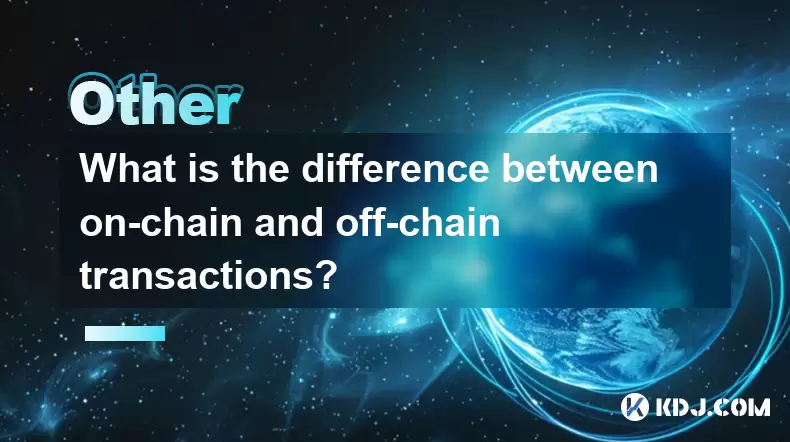
What is the difference between on-chain and off-chain transactions?
Aug 02,2025 at 04:22pm
Understanding On-Chain TransactionsOn-chain transactions refer to digital asset transfers that are recorded directly on a blockchain ledger. These tra...
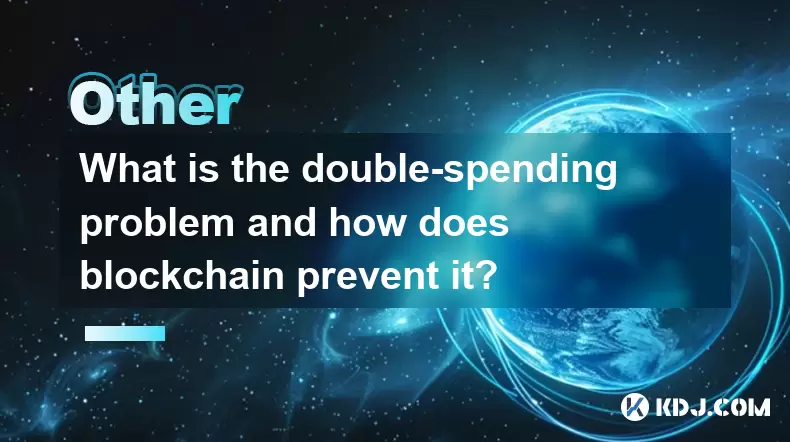
What is the double-spending problem and how does blockchain prevent it?
Aug 02,2025 at 01:07pm
Understanding the Double-Spending ProblemThe double-spending problem is a fundamental challenge in digital currency systems where the same digital tok...
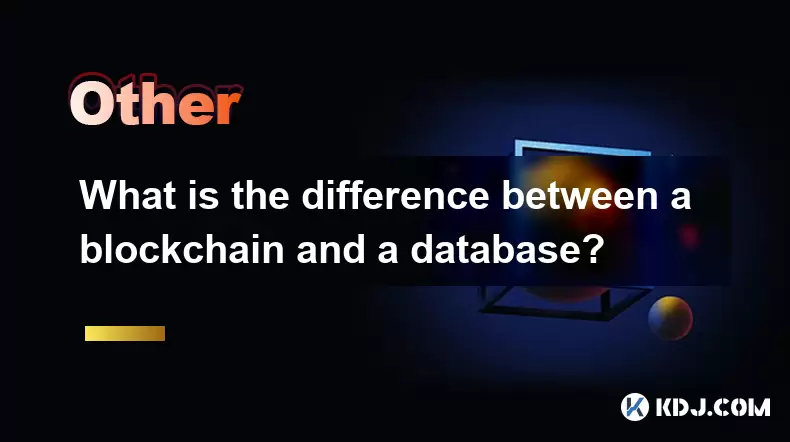
What is the difference between a blockchain and a database?
Aug 01,2025 at 09:36pm
Understanding the Core Structure of a BlockchainA blockchain is a decentralized digital ledger that records data in a series of immutable blocks linke...
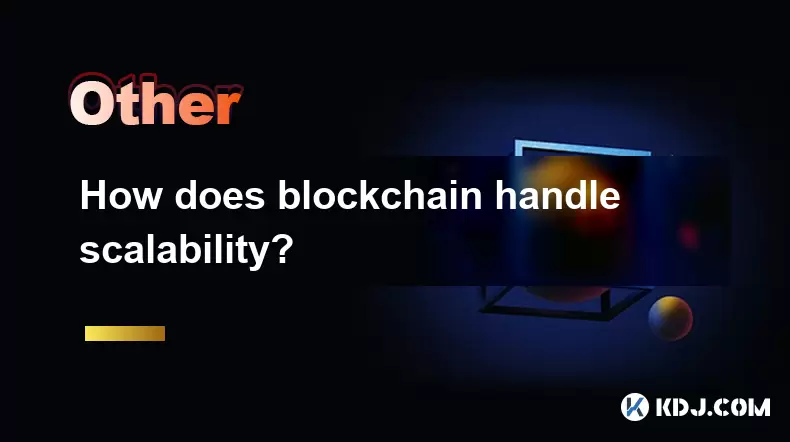
How does blockchain handle scalability?
Aug 02,2025 at 02:58pm
Understanding Blockchain Scalability ChallengesBlockchain scalability refers to a network's ability to handle an increasing volume of transactions wit...
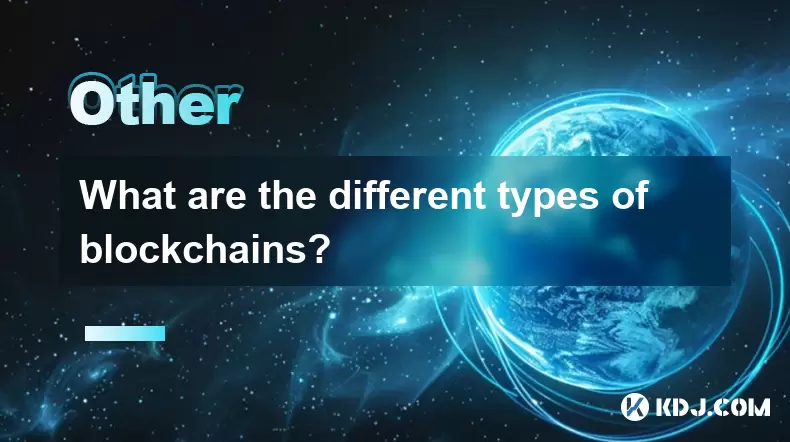
What are the different types of blockchains?
Aug 03,2025 at 03:01am
Public Blockchains: Open and Decentralized NetworksPublic blockchains are the most widely recognized type of blockchain, characterized by their open a...
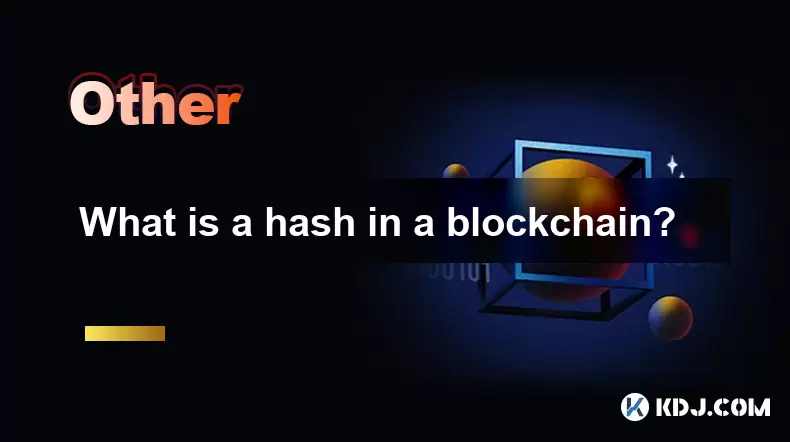
What is a hash in a blockchain?
Aug 02,2025 at 05:28am
Understanding the Concept of Hash in BlockchainA hash in the context of blockchain technology refers to a unique digital fingerprint generated by a cr...

What is the difference between on-chain and off-chain transactions?
Aug 02,2025 at 04:22pm
Understanding On-Chain TransactionsOn-chain transactions refer to digital asset transfers that are recorded directly on a blockchain ledger. These tra...

What is the double-spending problem and how does blockchain prevent it?
Aug 02,2025 at 01:07pm
Understanding the Double-Spending ProblemThe double-spending problem is a fundamental challenge in digital currency systems where the same digital tok...

What is the difference between a blockchain and a database?
Aug 01,2025 at 09:36pm
Understanding the Core Structure of a BlockchainA blockchain is a decentralized digital ledger that records data in a series of immutable blocks linke...

How does blockchain handle scalability?
Aug 02,2025 at 02:58pm
Understanding Blockchain Scalability ChallengesBlockchain scalability refers to a network's ability to handle an increasing volume of transactions wit...

What are the different types of blockchains?
Aug 03,2025 at 03:01am
Public Blockchains: Open and Decentralized NetworksPublic blockchains are the most widely recognized type of blockchain, characterized by their open a...

What is a hash in a blockchain?
Aug 02,2025 at 05:28am
Understanding the Concept of Hash in BlockchainA hash in the context of blockchain technology refers to a unique digital fingerprint generated by a cr...
See all articles
























